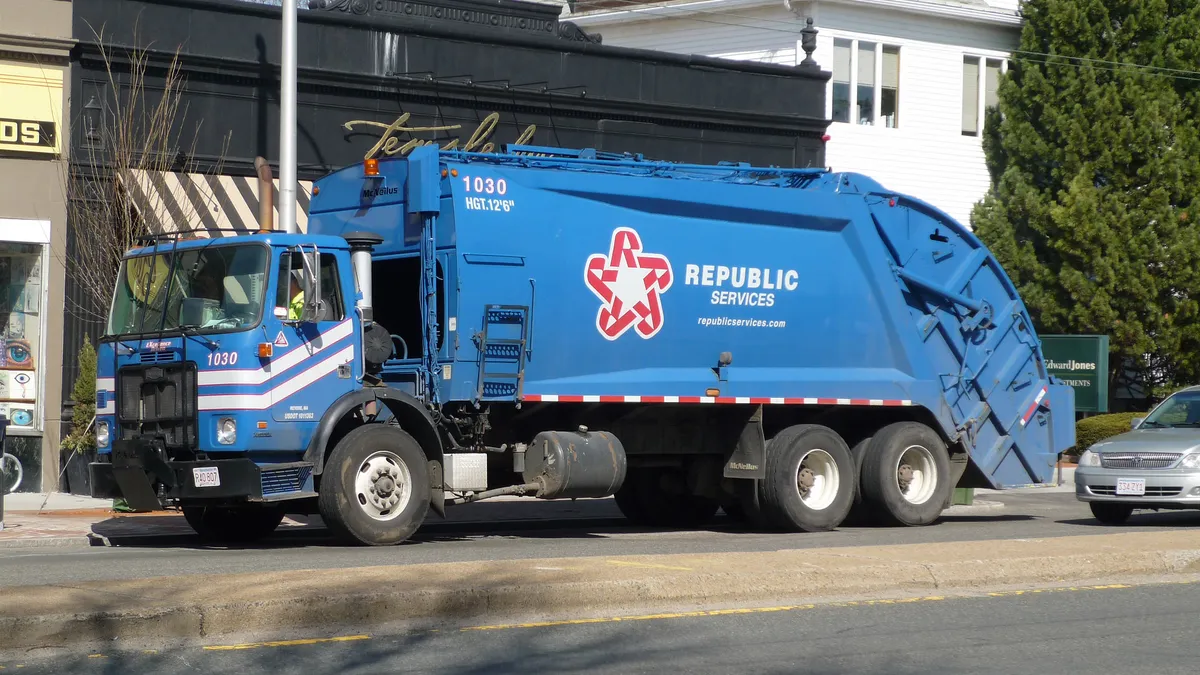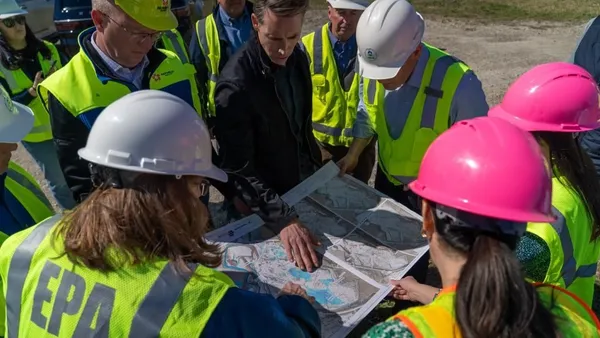Dive Brief:
- Tennessee's Rutherford County Commission voted unanimously against an April 12 motion that would have been the first (nonbinding) step toward expanding the Middle Point Landfill owned by Republic Services in Murfreesboro, as reported by the Daily News Journal. The site is currently projected to reach permitted capacity around 2027.
- The motion would have allowed Republic to conduct testing in an adjacent, unlined county landfill. One proposal to create a "Middle Point 2.0" site, with 15 more years of capacity, would have involved selling or deeding the site to Republic and moving some waste into lined cells. Multiple officials raised concerns about potentially uncovering hazardous waste that could shift the county's responsibilities from standard post-closure to a Superfund situation.
- Following this vote, one commissioner introduced a second "feel good" motion to formally prevent Middle Point from ever expanding in any form. That vote also passed, though could be overridden by future commissioners after this year's election. The commission may also still pursue forming a regional solid waste authority, as proposed by consultant Gershman, Brickner & Bratton (GBB).
Dive Insight:
Like any landfill, Middle Point has long been a source of community frustration, steady income and tough questions. The 30-year-old site accepts waste from around the region, providing an estimated $3.9 million in annual benefits for the city and county. It has also caused odor issues that prompted community discussions in 2015. To help sort all of this out, the county contracted with GBB in 2016.
Since then, a solid waste advisory committee was formed that recommended the creation of a regional authority in February. Parallel to that discussion, GBB also worked up a set of four potential strategies for Rutherford County's future. This was specifically focused on disposal and didn't factor in recycling. Though it was noted in the report that Republic could potentially build a MRF at the landfill.
Of the options — no action, build a waste-to-energy facility, Middle Point 2.0, or a "max flex" transfer station network — GBB recommended a combination of the latter two. The thinking was that the county would still need efficient export capabilities, regardless of whether Middle Point reaches capacity in 2027 or 2042.
After a presentation by Harvey Gershman, and hours of discussion, the commission essentially punted. While the county's landfill may now, or in the future, leak leachate into the Stones River drinking supply, and will require continued gas maintenance, digging too deep was likened to opening a multimillion-dollar can of worms. One commissioner said he preferred the "ostrich" approach of figuratively keeping his head in the sand and not asking any questions.
Others asked Gershman about recycling, to which he cited all the economic challenges of commodity markets and seemed to set a potential diversion ceiling around 50%. It wasn't immediately clear why the commissioners didn't request a more holistic materials management plan, aside from the fact that they might not know it was possible. In a locally-regulated industry this can be a common challenge, where decision-makers aren't always well-versed enough in the topic to ask comprehensive questions of the professionals they look to for advice.
As noted by County Mayor Rutherford Burgess after the votes had been cast, "this is not the end of the journey." Some commissioners aren't seeking re-election, and others representing districts near the site were unlikely to vote for any path to expansion. Though whoever is filling those seats when this comes up next will be faced with the same questions and less time.















